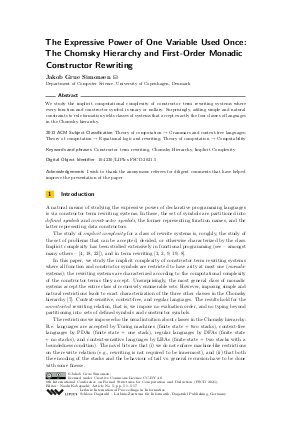LIPIcs.FSCD.2021.5.pdf
- Filesize: 0.67 MB
- 17 pages

 Creative Commons Attribution 4.0 International license
Creative Commons Attribution 4.0 International license



























Feedback for Dagstuhl Publishing